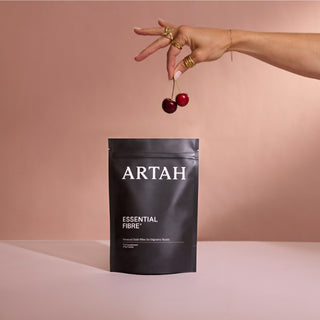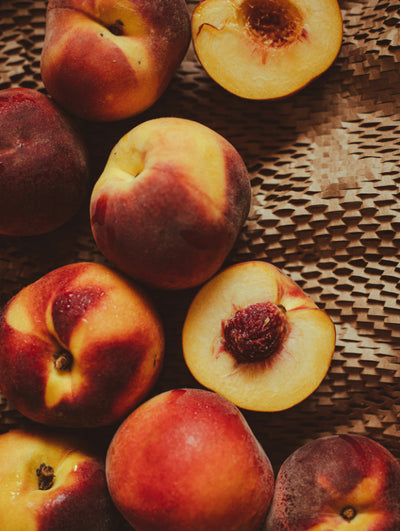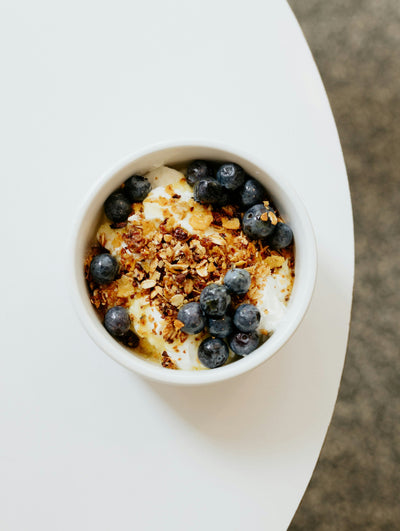What happens when you go alcohol free: A timeline
There’s no doubt about it – alcohol is not good for us. As well as being a depressant, alcohol also impacts our sleep, stress levels, skin, weight, and energy. It can also cause sexual dysfunction, fertility challenges, and gut issues. If that’s not enough, it has also been shown to increase the risk of many different types of cancer, including bowel, breast, and liver.
One study found that cancer risk (predominantly breast cancer) in women who had never smoked increased when they drank up to one alcoholic drink a day. According to the World Health Organisation, 4.4% of cancers diagnosed worldwide were attributed to alcohol consumption.
Whether you’ve engaged with “Dry January” or not, it can be helpful to understand exactly what happens in the hours, days, months, and years after you stop drinking. Spoiler alert: you’ll look and feel infinitely better.
24 hours since last drink
You may start to experience withdrawal symptoms, whether that be anxiety, excessive sweating, shakes, headaches or hand tremors (which occur due to an imbalance of neurotransmitters) as the body begins to process and dispel the alcohol consumed. They will differ from person to person, and severity will depend on how much you drink. Severe withdrawal symptoms include dramatically and dangerously raised heart rate and blood pressure, in which case medical supervision is required.
72 hours since last drink
After 72 hours, it’s normal to feel a lull in energy and mood, plus you’ll also likely experience disrupted sleep. Keep going, though. After 72 hours, you’ll find most withdrawal symptoms have subsided and the body begins to rebalance.
1 week since last drink
Seven days is all it takes to start sleeping better. More specifically, you’ll get more REM sleep, which is a crucial time in which the brain processes emotions and memories. When we have been drinking, we tend to fall into deep sleep and only get around one to two REM cycles, as opposed to the normal six or seven. There are myriad studies to demonstrate alcohol’s impact on sleep, with one finding that moderate to heavy drinking doesn’t just impair sleep in the here and now, but also predicts decreased sleep quality later in life.
Better sleep leads to improved eating patterns and hunger hormones start to rebalance, plus you’ll also find you’re more focused, productive and clear-headed. Headaches will likely become a thing of the past and you’ll also be full of energy, thanks to improved hydration levels – alcohol is a diuretic, after all. You can also enhance your hydration status with the help of our electrolyte powder, Cellular Hydration.
2 weeks since last drink
Since the liver metabolises the alcohol – converting it into less harmful substances – it is most prone to damage. However, it has amazing regenerative power and starts to improve soon after your last drink. It’s after around two weeks that it really begins to show improvements. Since you’re not consuming so many calories – there are around 188 in a single large glass of white wine – you may also notice a drop in your weight, as well as continued improved clarity and cognition.
3 weeks since last drink
Research has found that a three week period of abstinence leads to a full gut recovery. In one study, those suffering alcohol use disorder (and who were suffering from leaky gut) not only had a healthy gut barrier function after this time, but the good bacteria in the gut was also improved. Meanwhile the stomach lining, which is often irritated by alcohol, should begin to heal at this point, and you’ll experience fewer acid reflux symptoms and other stomach issues, like indigestion.
4 weeks since last drink
At this point, your blood pressure starts to drop, not just because alcohol causes it to rise over time, but also due to a decrease in your weight. Since high blood pressure can lead to stroke, heart attack and other health issues, this is a great step for your longevity. Meanwhile, skin starts to look more luminous and healthy because you’re generally more hydrated, plus inflammation drops, so skin issues, including acne and eczema, will naturally begin to heal. And last but not least, the liver has already begun to shed any excess fat and its overall function improves, which will mean your body is better able to absorb key nutrients, immunity function will increase and you’ll have more energy.
3 months since last drink
Between three and six months after your last drink, your liver will be in even better form, and so will your inflammation levels – cue a reduced risk of inflammatory diseases, including multiple sclerosis, Crohn’s, diabetes and psoriasis. Your risk of suffering an array of different cancers, including colorectal, liver, oral and ovarian, also drops at this point.
1 year since last drink
A year without alcohol is a huge achievement for mind, body and soul. While some will experience different symptoms in the months after they drink, almost everyone reaps the benefits of going booze-free after a year. Energy, sleep, mental and physical health are all vastly improved, while poor mood, constant hunger, dull skin and feeling miserable are a distant memory.
Disclaimer: The information presented in this article is for educational purposes only and is not intended to diagnose, prevent, or treat any medical or psychological conditions. The information is not intended as medical advice, nor should it replace the advice from a doctor or qualified healthcare professional. Please do not stop, adjust, or modify your dose of any prescribed medications without the direct supervision of your healthcare practitioner.


















































